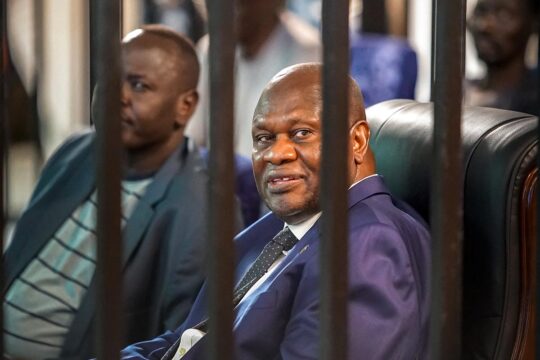The head of the United Nations mission in Sudan said Tuesday that attacks in Sudan's Darfur region could amount to crimes against humanity.
Darfur has never recovered from years of fighting that began in 2003, and since April has been a centre of the now eight-week-old war between Sudanese army chief Abdel Fattah al-Burhan and his former deputy Mohamed Hamdan Daglo, known as Hemeti, who leads the paramilitary Rapid Support Forces (RSF).
"There is an emerging pattern of large-scale targeted attacks against civilians based on their ethnic identities, allegedly committed by Arab militias and some armed men" in RSF uniform, Volker Perthes, head of the UNITAMS mission to Sudan, said in a statement.
"These reports are deeply worrying and, if verified, could amount to crimes against humanity."
He said the situation in Darfur "continues to deteriorate" and expressed particular alarm about El Geneina, the capital of West Darfur state, following waves of violence "which took on ethnic dimensions".
Another UN official, Toby Harward of the UN refugee agency, previously said hundreds have been killed in Darfur, on the border with Chad.
In 2003, rebels in Darfur rose up against Sudan's Arab elites they accused of monopolising political power and wealth.
The Islamist-backed strongman then in power, Omar al-Bashir, responded by unleashing the Janjaweed militias, whose atrocities shocked the world.
The unrest killed at least 300,000 people and displaced 2.5 million, according to the UN. The bloodshed led to international charges of genocide, crimes against humanity and war crimes against Bashir and others.
Daglo, from Darfur's pastoralist camel-herding Arab Rizeigat people, rose to prominence with the Janjaweed, which made up the bulk of the RSF formed in 2013.
Darfur governor Mini Minawi, a former rebel leader now close to the army, on Saturday said on Twitter that "what is happening in El Geneina and in Kutum should lead to an international investigation".
Last week the Sudanese authorities loyal to the army declared Perthes "persona non grata", accusing him of taking sides in the conflict. Perthes was outside Sudan at the time.
The UN expressed support for him and said his status had not changed. It said the declaration of "persona non grata" violated international law.


